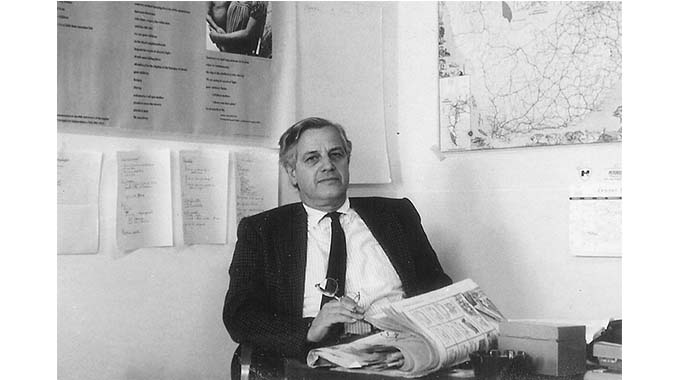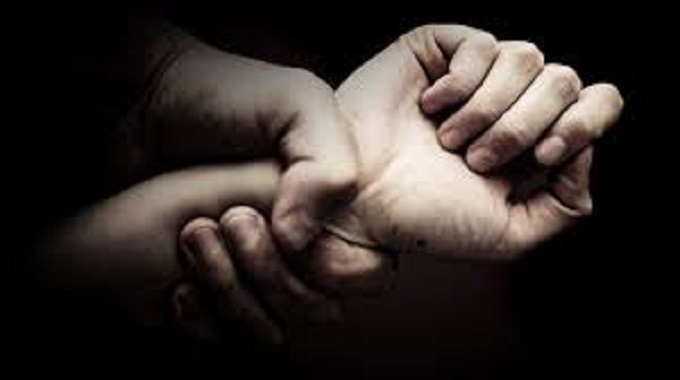Edgar Lockwood’s visit to Mozambique: Gleaning information about Zimbabwe’s armed liberation struggle

Pathisa Nyathi
It does seem some journalists in certain quarters of this world do much more than what we have come to expect of them.
I am persuaded to arrive at this conclusion when I observe their numerous visits to the Frontline States, the external wings of the liberation movements(ZAPU/ZPRA and ZANU/ZANLA), Geneva, London and Washington, inter alia. They seem to have been some integral machinery for intelligence gathering on behalf of their countries. What they penned influenced the countries’ foreign policies including relating to the liberation movements.
As a result, they were respectable sources of information and opinion makers. At least they could conceal their other roles and display their journalistic qualifications. That way they were able to gain access to the top leadership of the liberation movements and get their views and comments which were then made available to policy planners.
In a situation where there were fierce dog-eat-dog contestations at the time of the Cold War, both political and military intelligence were important in planning for a desired political settlement in the interests of host countries. When Zimbabwe was about to gain her independence there was a beeline by journalists from cities such as New York, Washington and London who were keen to carry out assessments of possible political scenarios likely to emerge following independence. At the same time they sought to influence the direction events were to take.
Which political movement was likely to emerge the winner after the general elections? For example, in the case of Zimbabwe they assisted in assessing the chances of success or failure of the internal settlement. In African terms such persons would be referred to as the ‘eyes and ears’ of rulers..
On the basis of their analyses they were in a stronger position to render political and policy advice to their governments who were keen to safeguard their political and economic interests when a new government was set up. In my biography of George Silundika it is reported that there were times when ZAPU’s Secretary for Information and Publicity shunned certain journalists who in his judgment did not report positively with regard to ZAPU/ZPRA.
“Tell him I am not in,” he said at one time when David Martin visited him at his Lusaka office.
This was the David Martin who after independence wrote a history book titled, “The Struggle for Zimbabwe.” Clearly, he was not sufficiently au fait with the roles of ZAPU/ZPRA in the liberation struggle. He penned the book with Phyllis Johnson.
It has to be acknowledged that some of these journalists won the confidence of some individuals within the top leadership of the liberation movements and they thus accessed top secret information. Given such information they analysed the political dynamics within a political movement. That way they were armed to influence political events, in particular the direction the movement took in ideological and political terms. This is power to influence political events-in the desired direction.
Now we turn to the visits undertaken by Edgar Lockwood. Today we complete his visit to Mozambique where he gleaned information regarding the political feelings of Mozambican President Samora Machel. He got to know about his attitude towards the Patriotic Front(PF) and fellow Frontline Presidents in particular regarding Zambian President Dr Kenneth Kaunda.
Lockwood was in touch with ZANU/ZANLA leaders and gleaned some information with regard to their partners in the PF. After that he proceeded to Lusaka where he met ZAPU and Zambian leaders to access more strategic information. We shall turn to his observations following his visit to the Zambian capital in forthcoming installments.
In Mozambique he got the feeling that the West was using Zambia as a tool for its purposes. There was belief, a strong one at that, that the International Monetary Fund(IMF) granted its loan to Zambia, opening the border to the south and reintegrating the Zambian economy with Rhodesia and South Africa, was one of the conditions.
“The necessity of bringing in fertilizers for Zambia is seen as a convenient fiction to cover the truth, which is that traffic across the border will carry everything in both directions. Kaunda had come to Machel in early fall to plead with him to go to the United Nations and ask that sanctions against the Rhodesian regime be lifted.”
According to Lockwood’s observations, such tactics were threatening the fragile PF. The meeting that took place in Tanzania in early November after that was meant to patch relations at least on a personal level. “Machel, whose country has suffered enormous losses to its revenues, its economic development and its personnel to sustain the Zimbabwe struggle was deeply angered by Zambia’s unilateral action, and did not attend the meeting. Tanzania was also upset.”
Lockwood acknowledged that the situational analysis was made clear by Machel during an address to the press corps on September 15th and recommended that the speech be read by interested parties. In a nutshell, he indicated that Mozambique was interested in a Zimbabwe that was free.
They were not interested in a Zimbabwe that is dominated by whites, as it was then, nor one in which there was a precondition that Zimbabwe must be a capitalist country nor one which retains the present security apparatus.
“We have no quarrels with those who are for capitalism if that is their choice. The choice is not ours to make,” I was told. Coming to power as a result of a free choice of the people of Zimbabwe, a popular government can then establish policies in accordance with what the people want. Foreign aid should not be tied with preconditions but should respect the people’s choice.
“Mozambique’s own handling of the issue of socialism was cited to me to show that the proper way is not to impose Marxism but to ask the people what they really want and to ask them if socialism will deliver what they really want.” Lockwood revealed that both Nyerere and Machel believed what they were told by David Martin who cited “ impeccable sources” that ZANU had control of a vast part of Zimbabwe. He claimed ZANU was in control of 80% of Zimbabwe as its operational area.
“However this does not yet mean that there are truly liberated areas in more than a restricted number of places. However I was assured that alternative health systems and education were now becoming a reality. Nathan Shamuyarira and Didemas(sic) Mutasa are now in Europe seeking funds for schools in the liberated zones.”
Lockwood reported that though Frelimo was critical of certain ZANU practices it was, on account of its own armed liberation struggle experiences against the Portuguese always supported those who fought for genuine independence.
As a result, reported Lockwood, ZANU has established itself in the eyes of Mozambique. He noted too that ZANU had the skill in politicising the rural peasantry in support of the war. Mozambique would struggle to preserve the unity of the PF and the Frontline States in order to avoid a civil war. He believed ZAPU fighters would not support a separate peace with Ian Smith and the internal settlement leaders.
“Clearly what ZANU, Mozambique and Tanzania fear are further maneouvres by the United States and Great Britain and their African allies and surrogates to isolate and disempower the Zimbabweans who have been carrying the brunt and burden of the fight. They are particularly worried about the danger of outright military intervention by the West.”











Comments